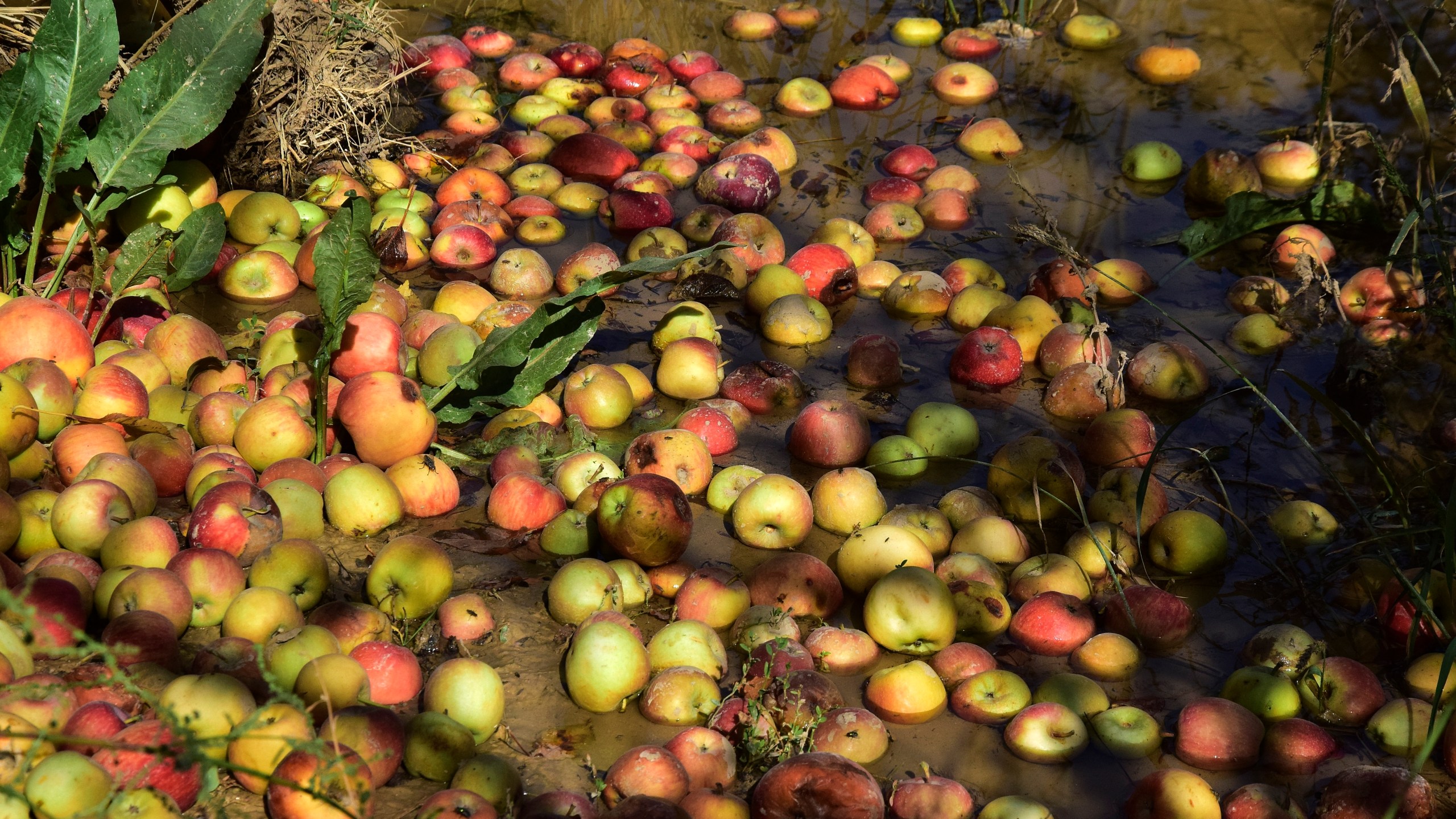
By Ijaz Ahmad
SWAT: Just weeks ago, poor farmer Akbar Yousafzai (55) stood in his peach orchard with hope in his heart to complete his under- construction house for family washed away by the 2022 floods in a jiffy.
Today, he walked through ankle-deep mud in gardens, staring helplessly at the waterlogged peach and appeal trees that once promised a bountiful harvest these days.
”This monsoon season broke us,” he said quietly as his eyes tracing the battered fruit barely clinging to sodden branches. “The peaches and apples are small, tasteless and many trees didn’t even flower properly due to climate extremes this season.”
Poor Akbar is not alone in this losses but many farmers of Swat. Across the scenic Swat Valley from Bahrain to Malam Jabba and Barikot to Kalam, the farmers are reeling from the aftermath of yet another devastating flash flood, triggered by a violent cloudburst on August 15.
What should have been the peak of harvest season turned into a disaster, threatening livelihoods and shaking the foundation of Swat’s peach and apples industry.
Swat is home to nearly 80% of Pakistan’s peach production, with about 20,000 acres under cultivation. Its peaches, known for their juicy sweetness, fill fruit stalls from Lahore to Karachi every summer.
According to the Agriculture Department, yields have plummeted, with the usual output of 400,000 kilograms drastically reduced. Market prices have skyrocketed from Rs400 to Rs500 per kilogram, putting strain on both consumers and retailers.
“The monson rains came fast this season. Our orchards and apples weren’t prepared and neither were we,” said Abdullah Shah, a grower from Madain Swat. “This month’s floods caused by cloudsbursts didn’t just drown local residents but it drowned our hopes too.”
Experts said climate change alone doesn’t bear the blame. Unchecked deforestation, illegal construction along riverbeds, and poor water management have all intensified the climate damage.
“These devastative floods are not just natural disasters but they’re seemed manmade,” said Gulzar Rehman, former Forest Conservator. “Orchards mismanagement, pesticide overuse, and lack of chilling hours due to climate change have disrupted entire fruit cycle in Swat.”
He also warned that extreme climates conditions causes adverse effects in peaches and apples, impairs photosynthesis, and results in lower-quality yields.
For Swat’s farmers, peaches and apples aren’t just a product but they’re a way of life, deeply rooted in culture, community, and economy.
“Our entire year economy largely depends on these cash crops,” said Akbar, wiping mud off his boots. “Without it, we can’t pay our workers, feed our families, or plan for education of children.”
Dr. Malik Riaz Khan, principal medical officer in Govt Hospital Pabbi Nowshera told this news agency that peaches and apples also carry public health value, particularly in diabetic diets. “When fruit prices rise like this, it affects everyone not just farmers.”
“We need climate-resilient seeds, soft loans, and irrigation reforms besides new dams and whopping plantations to counter floods,” said Ali Syed, a former agriculture officer. He stressed the importance of training women and smallholder farmers to adopt adaptive techniques and shift toward sustainable practices.
But beyond farming solutions, there’s a cry for KP government accountability for not taking solid measures to control floods in Swat. Many farmers are demanding an end to encroachments, stronger flood management, and comprehensive relief for those affected areas.
“The KP government must act now” said Abdullah. “This isn’t just about peaches and apples. It’s about humans survival.”
Pakistan has faced over 139 climate-related disasters in just two decades, and with climate extremes increasing in frequency and severity, experts warned that rural communities like Swat will continue to bear the brunt of climate change.
“Swat valley feeds us all,” said Gulzar. “If we don’t protect it, we lose more than fruit. We lose resilience, food, tradition, and lives.”
As this year damaged fruits crop hits markets at inflated prices in KP, one truth is ripening fast of saving Swat’s peaches and apples means saving its people.
“All we ask,” Akbar says, staring at his battered trees, “is for the KP government to help us keep our orchards and our children alive.”
Edited By Sumayyh Ahmad
Reporter/Editor
www:sportslinehd.com



